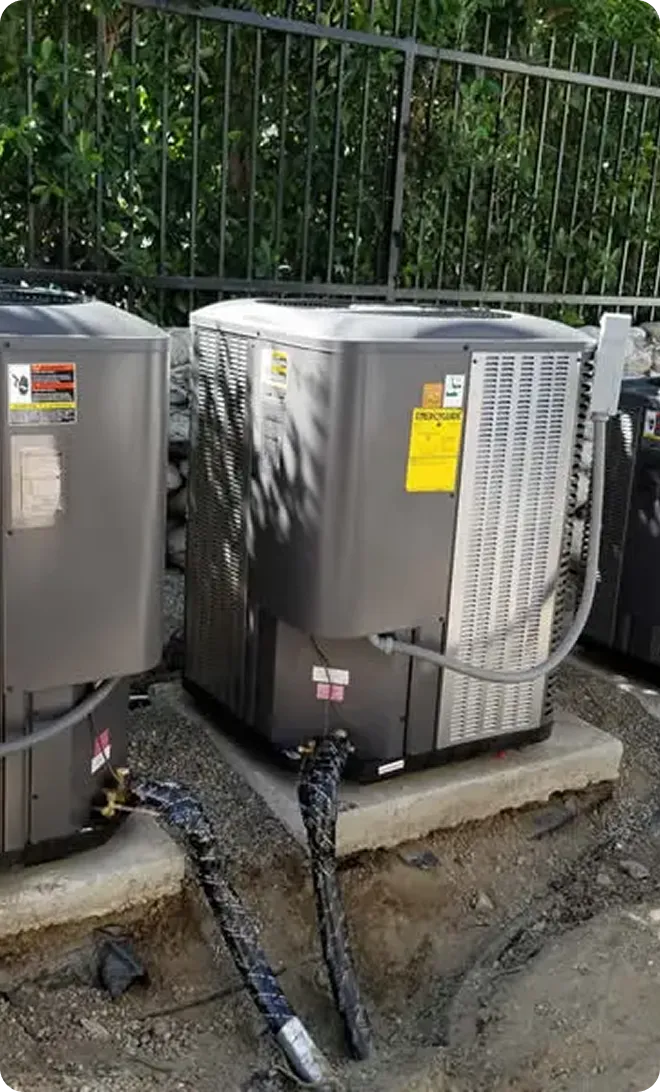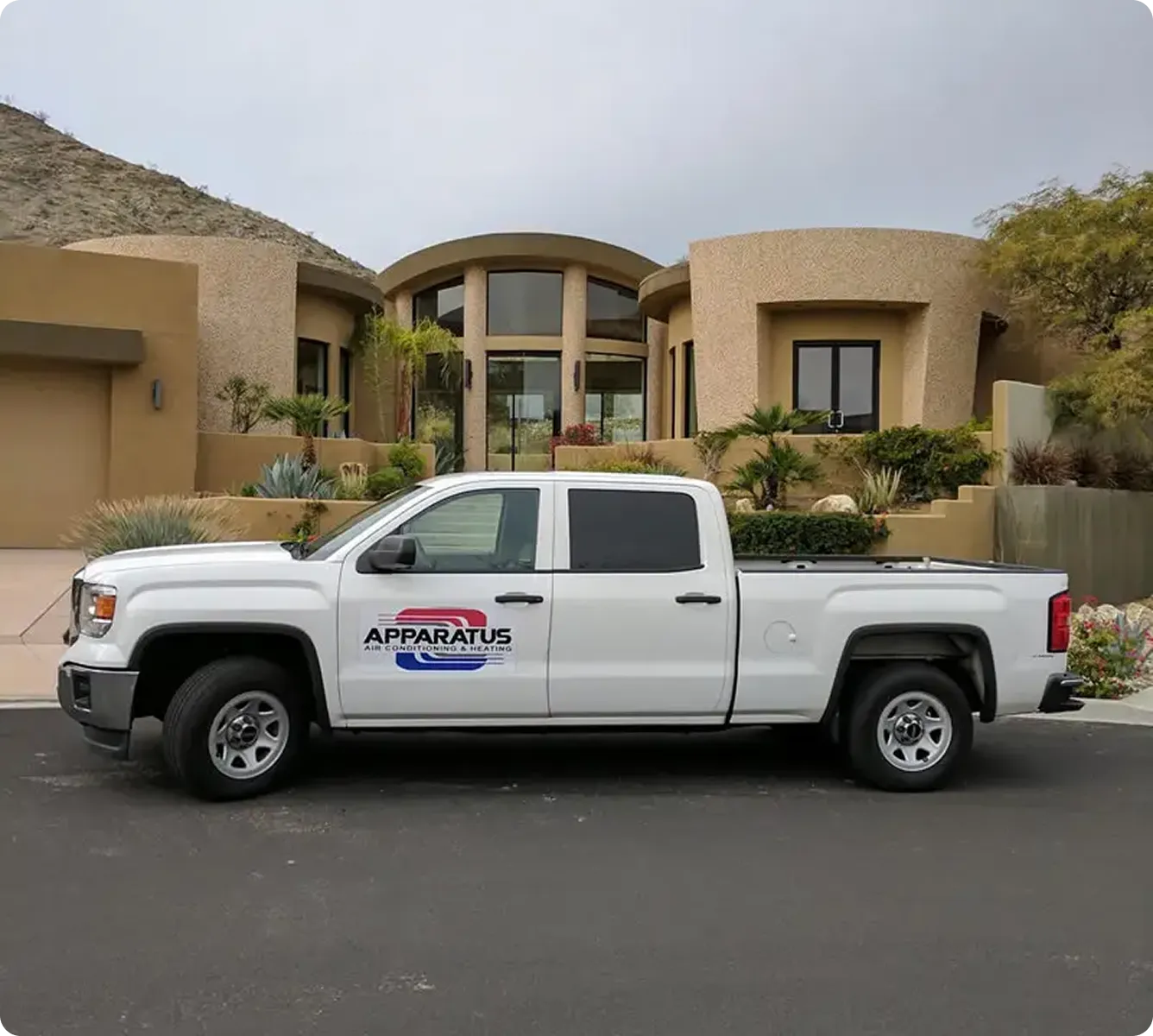
Water Heater Tune Up in Thousand Palms, CA
Water Heater Tune Up in Thousand Palms, CA
Keeping your water heater running reliably in Thousand Palms means dealing with desert heat, mineral-rich groundwater, and heavy seasonal use. A professional water heater tune up addresses common causes of reduced efficiency and premature failure so your home has consistent hot water, lower energy bills, and fewer emergency repairs.
-min.webp)
Why a water heater tune up matters in Thousand Palms, CA
Thousand Palms homes face conditions that accelerate wear on water heaters:
- Hard water and high mineral content cause sediment and scale buildup in tanks and on heating elements or burners.
- High seasonal demand and long hot-water draw cycles increase stress on components.
- Large daily temperature swings in the desert can magnify expansion and contraction stresses on plumbing connections and tank fittings.
A tune up restores safe operation, improves efficiency, and catches small problems before they become household disruptions or costly replacements.
Common water heater problems in this area
- Reduced hot water capacity and longer recovery times due to sediment-packed tanks
- High energy bills from inefficient burners or scaled electric elements
- Leaks from corroded fittings, sacrificial anode depletion, or tank deterioration
- Noisy operation — popping or rumbling caused by trapped sediment
- Pilot or ignition failures on gas models from dirty burners or clogged vents
Standard tune up checklist — what the service covers
Each tune up follows a methodical, transparent checklist so you know what’s inspected and adjusted. Typical steps include:
- Visual inspection and leak check
- Inspect tank, fittings, valves, and nearby plumbing for signs of corrosion, active leaks, or moisture.
- Verify floor pan and relief valve drain routing meet safety expectations.
- Pressure-relief valve test
- Manually exercise the temperature and pressure relief (TPR) valve to ensure it opens and reseats properly.
- Replace the valve if it sticks, leaks, or shows signs of corrosion.
- Thermostat calibration and temperature set check
- Verify thermostat(s) are accurate and set to a recommended safe temperature (usually around 120°F) to balance comfort, energy use, and scald risk.
- Adjust and test differential settings on gas units for proper cycling.
- Sediment flush and tank drain
- Drain and flush the tank to remove accumulated sediment that reduces capacity, causes noise, and shortens element life.
- Pay special attention to heavy mineral deposits common with desert groundwater.
- Burner or heating element inspection
- For gas units: clean and inspect burner assembly, pilot or ignition system, and combustion chamber for soot or obstructions.
- For electric units: test and measure heating element condition; replace weak or failed elements where necessary.
- Anode rod inspection
- Inspect sacrificial anode for depletion. Replace when significantly corroded to extend tank life, particularly important with hard water.
- Gas line, venting, and combustion safety checks (gas units)
- Confirm proper combustion, venting, and CO-safe operation. Clean or adjust as needed to maintain safe exhaust flow.
- Electrical and control checks (electric and hybrid)
- Inspect wiring, connections, breakers, and control boards for signs of wear or unsafe conditions.
- Insulation and piping inspection
- Assess insulation on hot water pipes and tank blanket (if applicable). Recommend improvements to reduce standby losses in desert climates.
- Final performance test
- Run a test cycle to confirm proper operation, check for leaks post-flush, and verify hot water recovery.
Expected outcomes after a tune up
- Improved energy efficiency and lower monthly energy use from cleaner burners/elements and properly set thermostats.
- Increased hot water capacity and faster recovery after sediment removal.
- Quieter operation; elimination of popping or rumbling noises caused by sediment.
- Reduced risk of sudden leaks or tank failure by catching worn anode rods, weak valves, or compromised fittings.
- Extended equipment life — routine maintenance can add several years to a tank’s serviceable life.
- Safer operation for gas units with verified combustion and venting performance.
Recommended frequency
- Annual tune up: Standard recommendation for most tank water heaters in Thousand Palms. Annual service keeps sediment and corrosion under control and preserves warranty conditions.
- Biannual or more frequent: Older units (10+ years), homes on very hard water, or households with heavy hot water demand should consider service every 6 months.
- After notable issues: If you notice reduced capacity, noises, visible leaks, or discoloration in hot water, schedule a tune up promptly rather than waiting for the next annual check.
Package options (service-level descriptions)
- Basic Tune Up
- Visual inspection, pressure-relief valve test, thermostat check, drain and light flush, leak check, safety report.
- Ideal for newer units with low sediment levels who want a baseline preventive inspection.
- Comprehensive Tune Up
- All Basic items plus full tank flush, anode rod inspection, burner or element cleaning, thermostat calibration, and test cycle.
- Recommended for most Thousand Palms homes to address mineral buildup and efficiency losses.
- Premium Maintenance Plan
- Comprehensive Tune Up plus priority scheduling, seasonal inspections, replacement of worn anode rod or relief valve as needed, and winterization tips.
- Best for older units, vacation homes, or properties with high hot water consumption.
(Note: Specific component replacements are performed when necessary and can be listed in a post-inspection report. Pricing and replacement options vary based on unit type and condition.)
How tune ups prevent costly breakdowns
Routine maintenance identifies small failures that lead to major repairs: a worn anode rod allows the tank to corrode, a sticky TPR valve can cause pressure issues, and heavy sediment can cause element burnout or overheating. Catching these early prevents emergency replacement, water damage, and higher energy bills. In Thousand Palms, where hard water and high usage accelerate wear, preventive tune ups are especially effective at avoiding sudden failures during peak seasons.
Signs you need a tune up now
- Decreasing hot water supply or longer wait times for hot water
- Loud popping, rumbling, or banging from the tank
- Rusty or discolored hot water
- Water around the base of the heater or dampness on connections
- Frequent pilot outages or inconsistent heating on electric units
Regularly scheduled tune ups tailored to Thousand Palms water conditions protect your home, improve efficiency, and extend the life of your water heater. A clear, documented service inspection ensures you know the current condition of your equipment and the most effective next steps to avoid unexpected failures.

hear what our satisfied
clients have to say









.webp)